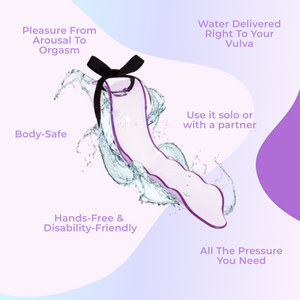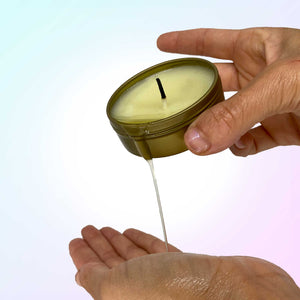A diaphragm, spermicide, or spermicide-lubricated condom can make you more likely to get a UTI because they all can contribute to bacterial growth.
What is UTI?
A urinary tract infection (UTI) is when your urinary system gets infected (ureters, bladder, kidneys, and urethra). It normally affects females over males and can be very painful, especially if it comes back. Although antibiotics can usually clear up UTIs in a matter of days, there are simple ways to prevent it from happening again.
Firstly, let’s identify some main causes of UTI’s:
Causes of UTIs
Although all of this sounds bleak, there are ways to reduce the risk of getting a UTI.
- Condoms are being used. Be patient! Before you get out your love gloves, please listen! Always Practice Safer Sex. However, using unlubricated condoms may increase your risk of developing UTIs, which could be due to increased irritation of the vaginal area during sexual activity. Your risk can be increased by using spermicide in combination with condoms or diaphragms. Consider trying a condom that is free from spermicide, dyes, and harmful chemicals. Our natural buttercup condoms for example are 100% natural, vegan latex.
- You don't pee after sex - You shouldn't be afraid of getting a UTI but equally, you should also understand it is very possible you could get a UTI. You can reduce your risk by going to the toilet after intercourse, and this will likely flush out any bacteria that might have got into your bladder.
- A common one - You hold on to pee too long. It's easy to be busy. However, not going to the toilet, especially after sex can cause more harm than good. Urine shouldn't sit in your bladder for too long as bacteria can grow if it does.
- Water is super important. It’s a best practice to drink lots of water anyway, for general health reasons. Drinking H2O is especially a great way in this case for flushing out bacteria before they can take hold.
- A lot of sex. The more you have sex, the more likely you are to get a UTI. Basically, it’s just increasing the chances over time that bacteria can move to your urethra via your vagina or perineum, which is the area between your vagina and your anus.
- Wipe from the back to the front - E.coli is the bacteria responsible for most UTIs. The substance can be transported from the rectal area to the urethra. The moral of the story is Always Wipe from Front to Back. Remember that anal sex, oral sex, and sex toys can all cause bacteria in the pee.
- Sugar is a common ingredient in most diets. UTI-causing bacteria love sugar so it is easy to provide a feast for them every time your sweet tooth strikes. You may also experience irritation in your urinary tract from certain foods and drinks, such as coffee, alcohol, or chocolate. This can lead to an increase in UTIs.
- Certain methods of birth control being used - Whilst there are many birth control options that can prevent UTIs, one method can be associated with UTIs, and that is the diaphragm. The diaphragm position puts pressure on the bladder, which could increase the risk. The good news is: There are many other great birth control options if this is a concern.
Safety Tips to avoid UTI
UTIs are more prevalent in females than they are in men. Because a female's urinary system is smaller than a male's, bacteria can travel more easily to the bladder.
The urethra is also closer to the anus, allowing bacteria from the anus more easily travel up the urinary tract and potentially cause an infection.
These risks can further be increased by penetrative sex, which forces bacteria into the urethra.
Although there is no 100% safe way to have sex with someone suffering from a UTI or other sexually transmitted diseases, these simple strategies can help reduce the likelihood of getting it in the first place.
Some other things to consider:
- To flush out bacteria, you should urinate both before and after having sex
- Avoid any sexual activity that could spread bacteria from your anus to your vagina or urethra. Anal sex users should use condoms. It is also recommended to always replace them with a new condom after penetration of the anus or any other body part.
- After urinating, or having bowel movements, wipe yourself from front to back. This will prevent bacteria from spreading.
- To clean your urinary tract, drink plenty of water. A person who is dehydrated is at greater risk of developing a UTI.
- Talk to your doctor about other options. Many people suffering from allergies to condoms or diaphragms can contract UTIs when not careful.
- Consider using a probiotic. A small number of clinical trials suggest that probiotics can help prevent harmful bacteria from growing out of control.
- Before you stimulate a partner, wash your hands. While this will not completely prevent UTIs, it can help reduce the chance of accidentally introducing bacteria to the urethra.
- After touching your partner’s body parts, always wash your hands.
A sudden increase in sex with a partner, especially with a new partner can cause a UTI. This is sometimes called honeymoon cystitis by doctors.
Can you get a UTI from latex?
Condoms made of non-lubricated latex may cause friction and increase irritation to the women during sexual intercourse. This could increase the risk of developing a UTI.
What triggers UTI?
Bacteria can cause UTIs by entering the urethra, where urine flows from the body to the outside. The bacteria can reach the urethra through various methods, including sexual contact, poor hygiene, or pre-existing bladder conditions.
Can condoms irritate the urethra?
Specific birth control methods, such as condoms, diaphragms, or spermicides, can irritate the urinary tract, particularly at the urethra opening. Infected tissues are more susceptible to infection.
Is UTI going to go away by itself?
UTI is typically treated with antibiotics, however, they certainly can be treated with natural methods such as flushing your system with water. It can be risky not to treat a confirmed UTI using antibiotics so make sure you weigh up all the risks and if anything worsens, get professional help as soon as possible.
How do I get rid of a UTI within 24 hours at home?
It's tempting to cut back on your water intake when you feel the first signs of burning after going to the bathroom.
Here are some quick suggestions worth trying if you want to do all you can:
- Drink Cranberries.
- Take a sick day.
- Take a look at Probiotics.
- Eat Vitamin C.
- Garlic is a good choice.
- Maintain good hygiene.
How long does UTI last?
Most UTIs are treatable. Most bladder infection symptoms disappear within 24 to 48 hours of treatment, although it may take up to a week for kidney infections to disappear.
What are the signs of a UTI
UTI symptoms:
- You feel a burning sensation when you pee.
- An intense or frequent urge to pee.
- Pee that is cloudy, dark, bloody or unusual-smelling.
- Pressure or pain in your lower abdomen or back.
- Feeling tired or unsteady.
- Chills or fever are signs that infection has reached your kidneys.
Is it possible to get a UTI through your fingers?
It is easy to get a bacterial infection in the urinary tract. Bacteria from the vaginal, genital and anal areas can enter the urethra and travel to the bladder. The bacteria from your partner's genitals, anus, or sex toys can enter your bladder and the same is said from your hands, fingers and nails. Always ensure you wash them before touching your partner's body.
Can sperm inside you cause a UTI?
Sexual activity can result in UTIs, and germs from other areas can travel to the urethra (e.g., from the vagina). Spermicides may kill good bacteria, which can protect you against UTIs so consider opting for condoms that do not contain spermicide.
Is it possible for condoms to cause burning sensations?
Particularly latex condoms can cause itching, swelling, and burning. To treat allergy symptoms, you may want to take an antihistamine pill. You may need urgent medical attention if you have severe allergies, and some lubes can also cause an allergic reaction.
Can condoms irritate?
After using a condom, some people feel itchy, red, or swelling, and these are the symptoms of a latex allergy. Latex comes from the milky sap of rubber trees, and many commercial and medical products use it, including condoms.
What is a Silent UTI?
Silent UTIs are just like regular UTIs but without the usual symptoms that show our immune system is fighting the infection. Silent UTIs are more common in those with weaker immune systems, particularly the elderly. These can be worrying if left and not treated from the beginning.
What if I don't see a doctor to get UTI antibiotics?
Are prescriptions or doctor visits required for antibiotics to be prescribed for UTI? Antibiotics are only available on prescription in most locations. To obtain a prescription, you will need to speak to a doctor, through personal appearance, by phone or via video. If you choose not to get antibiotics, you may be able to treat yourself by taking better care, improving your hygiene and drinking more water. If the situation worsens, get professional help as early as possible.
More Articles You Might Love

Get To Know Your Vulva




















